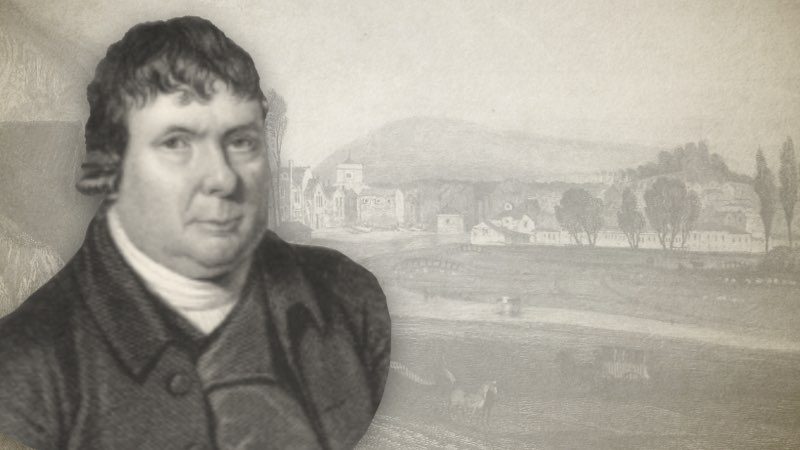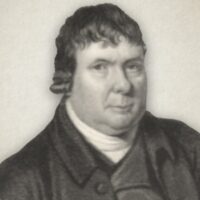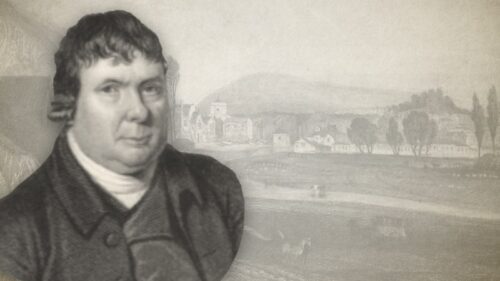
The Child of Liberty in Legal Bondage: Rebellion (6/11)
I come now to the 6th head. Rebellion and discontent.
Jonah is ordered to Nineveh. He rebels and goes to Joppa, in order to flee to Tarsus from the presence of God. He is thrown overboard, and sinks in the belly of hell. Then he is humbled, and prays heartily. God brings him up again, and repeats his command to Nineveh. Jonah goes, and delivers his message, which was all that God required of him. He might then have gone home again, if he would; but Jonah seeks another quarrel, like Lot’s wife, who looked back to see what became of Sodom: Jonah “makes a booth, and sits there to see what becomes of the city.” He had no orders for all this; he might have left the event of his message to God. Jonah expects an overthrow of all the buildings by an earthquake, or some strange judgment; God meant an overthrow of idolatry. Jonah expects that all would presently go crying into hell; but God intended an universal cry to heaven. He begins to breathe out his anger against God; God breathes an east wind, and smites Jonah. Jonah faints; so he may – “God fainteth not, neither is weary.” God raises a gourd; Jonah is pleased. God smites it; Jonah is angry again, and “does well to be angry, even unto death.” Suppose he is-what of that? Nineveh shall stand in spite of him. His message was an over throw, not destruction. But God did not tell Jonah what he meant by an overthrow; then it proves (what every body knows) that “God giveth not account of any of his matters,” Job, xxxiii. 13.
Jeremiah flees from the work, and is determined to have no more of it. God’s anger is to come in like a torrent, and not one prophet to stand in the gap for Israel. A Jewish captain caught him, and brought him back, taking him for a traitor, who are wroth with him; they smite him, and put him in the prison, Jer. xxxvii. 13, 14. Moses desires to be killed outright, that he may not see his wretchedness.
A soul thus influenced with a spirit of bondage, while he is harassed with a legal conscience, is contented nowhere. The Psalmist wants the wing of a dove to fly away, and remain afar off in the wilderness. Another wishes that he had given up the ghost as soon as he came forth from the womb, and that no eye had seen him. Another is for a place of wayfaring men, that he may leave the people, and go from them. Elijah entreats the Lord to take away his life; which was what God never intended to do.
Every affliction under this spirit of bondage is singular, and works discontent. Had it been an enemy I could have borne it; or, if it had been him that hated me, I would have hid myself from him; but it was thou, &c. – everything but the right. Leah envies Rachel’s beauty. Rachel envies Leah’s fruitfulness. But nothing of this is felt while the love of Christ is enjoyed.
William Huntington (1745-1813) was an English Calvinist preacher and prolific writer. His influence spread across the country and denominational lines. John Hazelton wrote of him—
“He published one hundred books, large and small, and once mentions being "weary at night, after having been hard at writing for fifteen hours during the day." Henry Cole wrote of him—‘’It may be asked why in my ministration, such as it is, I make frequent allusion to the ministry of that great and blessed servant of the Most High, the late Mr. Huntington. The reasons are these—1st. Because I believe he bore and left in Britain the greatest and most glorious testimony to the power of God's salvation that ever was borne or left therein. 2nd. Because I believe he planted the noblest vine of a Congregational Church that ever was planted therein; and 3rd. Because I believe the Churches that maintain the vital truths he set forth form a very essential feature in the Church-state of Christ in the land in these times, and perhaps will do so to the time of the coming day of God's retribution."
William Huntington, The Child Of Liberty In Legal Bondage (Complete)




